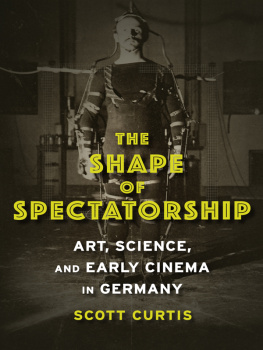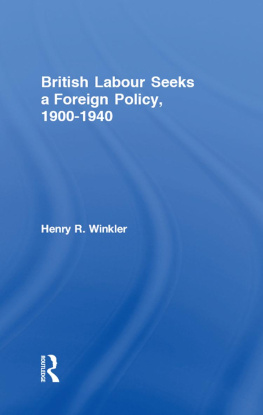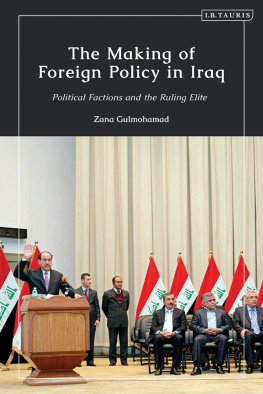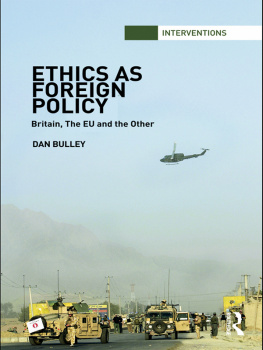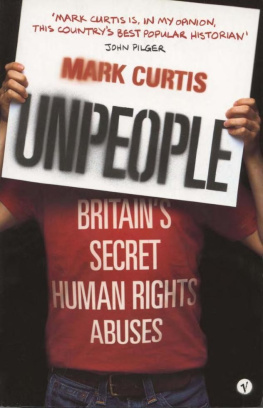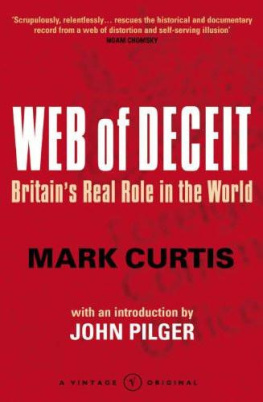About the Book
In his explosive new book, Mark Curtis reveals a new picture of Britains role in the world since 1945 and in the war against terrorism by offering a comprehensive critique of the Blair governments foreign policy. Curtis argues that Britain is an outlaw state, often a violator of international law and ally of many repressive regimes. He reasons not only that Britains foreign policies are generally unethical but that they are also making the world more dangerous and unequal.
The Web of Deceit describes the staggering gulf that has arisen between New Labours professed commitment to upholding ethical values and the reality of current policies. It outlines the new phase in global intervention, the immorality of British policy in Afghanistan, Kosovo, Iraq and Indonesia and support for repressive governments in Israel, Russia, Turkey and Saudi Arabia. Curtis also reveals Britains acquiescence in the Rwanda genocide and economic policies in the World Trade Organisation that are increasing poverty and inequality around the world.
Drawing on formerly secret government files, the book also shows British complicity in the slaughter of a million people in Indonesia in 1965; the depopulation of the island of Diego Garcia; the overthrow of governments in Iran and British Guiana; repressive colonial policies in Kenya, Malaya and Oman; and much more.
About the Author
Mark Curtis is a former Research Fellow at the Royal Institute of International Affairs (Chatham House) and has written extensively on British and US foreign policies. His books include The Ambiguities of Power: British Foreign Policy since 1945 (Zed, London, 1995); The Great Deception: Anglo-American Power and World Order (Pluto, London, 1998); and Trade for Life: Making Trade Work for Poor People (Christian Aid, London, 2001). He has worked in the field of international development for the past ten years. His website address is: www.markcurtis.info
Also by Mark Curtis
Secret Affairs: Britains Collusion with Radical Islam
Unpeople: Britains Secret Human Rights Abuses
Trade For Life: Making Trade Work for Poor People
The Great Deception: Anglo-American Power and World Order
The Ambiguities of Power: British Foreign Policy Since 1945
This ebook is copyright material and must not be copied, reproduced, transferred, distributed, leased, licensed or publicly performed or used in any way except as specifically permitted in writing by the publishers, as allowed under the terms and conditions under which it was purchased or as strictly permitted by applicable copyright law. Any unauthorised distribution or use of this text may be a direct infringement of the authors and publishers rights and those responsible may be liable in law accordingly.
Version 1.0
Epub ISBN 9781407071640
www.randomhouse.co.uk
Published by Vintage 2003
Copyright Mark Curtis 2003
Foreword copyright John Pilger 2003
Mark Curtis has asserted his right under the Copyright, Designs and Patents Act 1988 to be identified as the author of this work
This book is sold subject to the condition that it shall not, by way of trade or otherwise, be lent, resold, hired out, or otherwise circulated without the publishers prior consent in any form of binding or cover other than that in which it is published and without a similar condition including this condition being imposed on the subsequent purchaser
First published in Great Britain by
Vintage, 2003
Vintage
Random House, 20 Vauxhall Bridge Road, London SW1V 2SA
Addresses for companies within The Random House Group
Limited can be found at:
www.randomhouse.co.uk/offices.htm
The Random House Group Limited Reg. No. 954009
A CIP catalogue record for this book is available from the British Library
ISBN 9780099448396
C ONTENTS
LIST OF ABBREVIATIONS
AIOC | Anglo-Iranian Oil Company (later BP) |
ANC | African National Congress |
BIOT | British Indian Ocean Territory |
DFID | Department for International Development |
DTI | Department of Trade and Industry |
FAC | Foreign Affairs Committee (House of Commons) |
GATS | General Agreement on Trade in Services |
HRW | Human Rights Watch |
IMF | International Monetary Fund |
MAI | Multilateral Agreement on Investment |
NATO | North Atlantic Treaty Organisation |
NGO | Non Governmental Organisation |
PKI | Indonesian Communist Party |
TNC | Transnational Corporation |
TRIPS | Trade-related intellectual property rights |
UNCTAD | United Nations Conference on Trade and Development |
UNDP | United Nations Development Programme |
UNHCR | United Nations High Commissioner for Refugees |
WTO | World Trade Organisation |
FOREWORD BY JOHN PILGER
Mark Higson was the Iraq Desk Officer at the British Foreign Office in 1989. In a setting the great satirist Dennis Potter might have conjured, Higson sat behind a little Iraqi flag and directly opposite the Iran Desk man, who sat behind the Ayatollahs flag. When I met him several years later, Higson described to me how ministers and officials systematically lied to parliament about illegal shipments of arms to Iraq. The draft letters I wrote for various ministers, he said, were saying that nothing had changed, the embargo on the sale of British arms to Iraq was the same.
Was that true? I asked.
No, it wasnt true.
And your superiors knew it wasnt true?
Yes. If I was writing a draft reply to a letter from an MP for Mr Mellor or Mr Waldegrave (then Foreign Office ministers) I wrote the agreed line. But they knew things had changed. I also wrote replies to go to members of the public who were concerned about the gassing of the Kurds at Halabja by Saddam Hussein and wanted to know what the government was doing about it. A lot of MPs and members of the public thought the 340 million trade credits we gave to Iraq [following the Halabja atrocity] was absolutely disgusting.
I said, You and your colleagues at the Foreign Office knew that British weapons were going illegally to Iraq. Is that correct?
Oh yes, yes. We were quite well aware that Jordan was being used [as the way into Iraq] you see, Iraq was regarded as the big prize.
So how much truth did the public get?
The public got as much truth as we could squeeze out, given that we told downright lies.
At the 1994 public inquiry into the scandal of illegal arms sales to Iraq, Higsons honesty was commended by Lord Justice Scott, the chairman, a rare accolade. Britains foreign policy establishment, Higson told the tribunal, is a culture of lying.
Tim Laxton, an auditor assisting the Scott Inquiry and one of the few to hear almost all the evidence, believes that had Scotts terms of reference allowed him to conduct a truly open and wide-ranging investigation, hundreds would have faced criminal investigation. They would include, he said, top political figures, very senior civil servants from the Foreign Office, the Ministry of Defence, the Department of Trade and Industry the top echelon of the British government.
Next page



